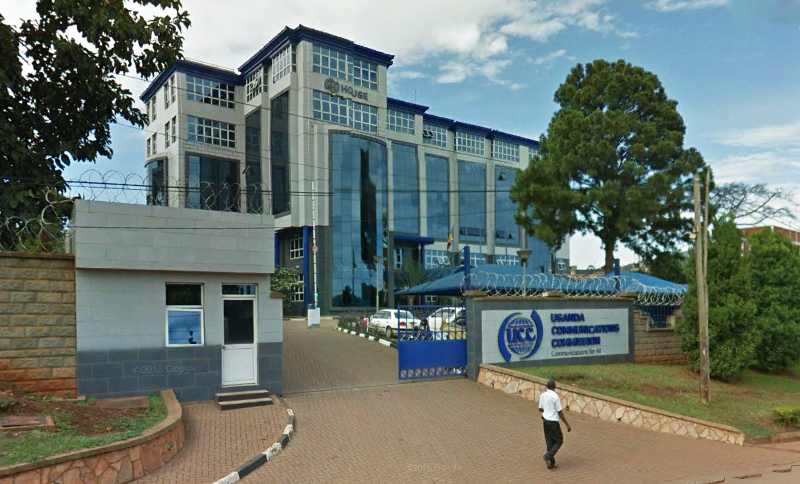
KAMPALA.
The Ugandan government is in advanced stages of procuring of technology that can enable it monitor all social media platforms ahead of next year’s General Elections .
According to The Daily Monitor , Uganda’s leading independent newspaper , the Uganda Communications Commission (UCC) is largely targeting content deemed as harmful to the public.
UCC, the media regulator, says it plans to acquire advanced digital monitoring technologies to filter harmful content online.
While the specifics of the equipment to be procured have not been made public, the Daily Monitor quotes Mr Ibrahim Bbosa, the UCC spokesperson saying the systems are expected to include AI-powered tools that can identify hate speech, incitement, and misinformation, along with real-time monitoring dashboards to oversee high-traffic social media channels.
“Additionally, geo-targeting capabilities will help trace the origins of certain content, particularly if it is disseminated from outside Uganda. Sentiment and trend analysis tools will detect fluctuations in digital tension or online unrest.

UCC’s goal is to develop precise tools that safeguard users while maintaining access,” Mr Bbosa told this publication at the weekend. Dr Chris Baryomonsi, the minister of ICT and National Guidance, told journalists at the government-owned Uganda Media Centre last week that government was moving to regulate the social media spaces and check contents that promote hate and disunity in the country.
Protection or suppression?
But critics say this is a clear move to legitimise suppression and repression of alternative voices as the electoral processes heat up. Nevertheless, Mr Bbosa said the government is not planning to introduce new legislations to curb online content, but using the current set of laws which make provisions for policing of the online content.
“Uganda already has a legal and regulatory framework in place to guide the use of social media platforms—including TikTok, Facebook, Twitter, WhatsApp, and others. The Computer Misuse Act, first enacted in 2011, and updated in 2022, is the cornerstone of this framework. It was designed to prevent cybercrimes, protect citizens from online abuse, and ensure digital platforms are used responsibly,” Mr Bbosa said in the April 8 lead Daily Monitor story .
He said Uganda’s legal framework doesn’t just acknowledge the challenges of social media, but it actively addresses them.
Mr Bbosa said many people use social media platforms with false or disguised identity to cause harm to others and said the law will now follow them up, including with thorough prosecution. Section 26D(1) of the Computer Misuse Act specifically deals with the misuse of Social Media with False or Disguised Identity.

UCC says this provision addresses the misuse of social media through the use of false or disguised identities, specifically targeting anonymous or fake accounts that disseminate illegal or harmful information. “It states that any individual who utilizes social media to publish, distribute, or share information prohibited by Ugandan law under a false identity commits an offence.” Mr Bbosa says the provision holds individuals criminally liable if they create fake profiles to incite violence, share pornographic material, or spread harmful propaganda.
“The section is particularly relevant during politically-charged times, when disguised identities are frequently employed to manipulate public opinion or provoke unrest,” he said.
He said Uganda’s social media landscape is not venturing into unfamiliar territory; instead, it continues to function within a developing yet already-established legal framework and that the impending changes are not indicative of a new crackdown but rather a more focused scrutiny of our online interactions, especially during a politically sensitive period.
“As digital technologies increasingly play a crucial role in shaping public discourse, the key principle remains the balance between freedom and responsibility. In light of the established laws and the current technological capabilities, albeit limited, there is a clear path forward for effectively addressing abuses within the social media landscape,” he said.
“By leveraging existing legal frameworks, such as the Computer Misuse Act and the Data Protection and Privacy Act, UCC will support the identification of harmful content and users, enabling swift action.
As a result, abusers can be apprehended and prosecuted in accordance with the law, ensuring accountability and reinforcing the message that misuse of social media will not be tolerated,” he added.
Tough times for groups

Mr Bbosa said it will no longer be business as usual for managers of social media platforms on behalf of organisations, government entities and businesses. Section 26D (2) of the Computer Misuse Act addresses organisational social media liability by holding account managers personally responsible for the content shared on their platforms. He said with this provision in place, administrators of social media platforms must tread carefully or else be held personally liable for posting content which is deemed harmful on organisational platforms.
“The person who manages the social media account of the organisation shall be held personally liable for the commission of the offence. Consequently, if a business, NGO, or government agency disseminates illegal or defamatory material through its official social media accounts, the individual overseeing the account—typically the communications officer—can face prosecution,” the clause states. Mr Bbosa said this provision aims to instill genuine accountability in digital communication practices, which the commission will enforce.
Section 25 criminalises the deliberate use of social media or electronic communication to disturb another person’s peace. It specifically addresses the act of willfully and repeatedly using such communication methods to infringe upon the peace, quiet, or privacy rights of individuals without any legitimate purpose for communication.